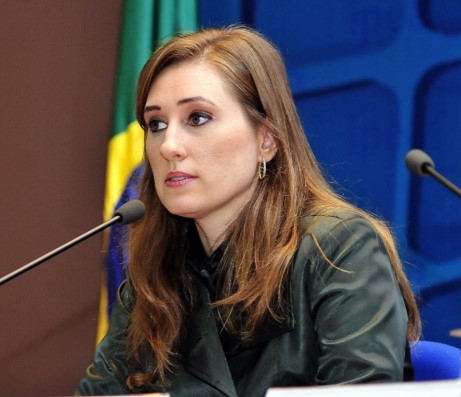8. Presentations
Date and time: Friday, 25 June 2021 12.30pm (BST)
Presentations: Editing and publishing in times of crisis – 18 months into the COVID-19 pandemic, what have we learned and which changes will stay?
The COVID-19 pandemic, officially declared by WHO on 11 March 2020 continues to have a major impact on societies and individuals, touching all aspects of professional and personal lives. A number of topical presentations at the EASE 2020 virtual conference paid tribute to the then emerging public health crisis. The pandemic has been ongoing since and has profoundly influenced a number of aspects related to editing and publishing. This session will highlight some of these and follow on some developments presented at the 2020 EASE conference aiming to point out future directions and lessons learnt.
This session will feature three short presentations, polls and Q&A.
Co-chair – Ines Steffens, Editor-in-chief Eurosurveillance, EASE Vice President

Ines is the Editor-in-chief of the scientific journal Eurosurveillance published by the European Centre for Disease Prevention and Control (ECDC) in Stockholm Sweden. Affiliated with Eurosurveillance initially as editorial advisor from 2003 onwards, she became its managing editor in 2006 and was responsible for the journal’s transfer from its previous publishers in London and Paris to ECDC. Over 10 years, Ines was member of the Scientific Committee of the European Scientific Conference on Applied Infectious Disease Epidemiology (ESCAIDE) and she is a member of the European Food Safety Authority (EFSA) journal’s scientific board since 2018.
Ines is an EASE Council member since 2015 and she is one of the EASE Vice-Presidents since 2018. In 2012, she was among the group establishing the EASE Gender Policy Committee. Before joining ECDC, Ines was Editor-in-chief for Germany’s national epidemiological and public health bulletin, the Epidemiologisches Bulletin, published by the Robert Koch Institute in Berlin. She is a trained internist, with broad clinical experience and expertise in infectious diseases. She holds a masters degree in public health, and a diploma in tropical medicine. Her special interests are scientific communications, publication ethics and knowledge transfer.
Co-Chair – Paola De Castro, Istituto Superiore di Sanità

Paola is Director of the Scientific Communication Service at the Istituto Superiore di Sanità (ISS), the National Institute of Health in Italy (www.iss.it). She develops communication strategies, including management of ISS publications (journals, technical reports, newsletters, and others) and organisation of events, addressed to different stakeholders. Paola carries on multidisciplinary research and training for public health, mainly focused on science communication, health equity, health literacy, and scientific writing, with research partnerships in Europe, Latin America, and Africa. She is also Director if ISS Museum for Public Health and of the ISS Scientific Library.
Paola has been actively involved in EASE activities, in particular as member of EASE Publication Committee (2006-2010) and Council (2012-2018), responsible for Training and Regional Chapters till 2019. She is Currently Member (and former Co-chair) of EASE Gender Policy Committee producing the SAGER Guidelines, and coordinator of the Italian Regional Chapter. Paola promoted the development of the EASE guidelines to authors and contributed to their Italian translation and diffusion, started EASE journal blog in 2006, collaborated in the organization of many EASE events (conferences, workshops, etc.).
Twitter: @paodecas
Speaker – Leila Posenato Garcia – PhD, Researcher, Jorge Duprat Figueiredo Foundation for Occupational Safety and Medicine, Brazil
Presentation: Where did all the women and contributions from low- and middle-income countries go?

The COVID-19 pandemic has highlighted gender and race inequalities in the academic and scientific environment. The underrepresentation of women and contributions from low- and middle-income countries in scientific publishing became more pronounced. Studies have shown low representation of women as the first authors of COVID-19 related articles submitted and published, both in scientific journals and on preprint servers. This presentation will show results of a survey conducted with authors, editors and reviewers from Brazil, with the aim of investigating the impacts of the COVID-19 pandemic on scientific publishing and to analyze gender and race inequalities. The presentation will also discuss factors associated to scientific productivity, such as childcare, career stage, domestic work, mental health status and working conditions at home, seeking to understand “where did all the women and contributions from low- and middle-income countries go?”.
Biography – Garcia has a PhD in epidemiology and is a Researcher from the Brazilian Institute of Applied Economic Research, currently working at the Jorge Duprat Figueiredo Foundation for Occupational Safety and Medicine in Florianópolis, Brazil. She was Editor-in-Chief (2014-2021) and Scientific Editor (2011-2014) for Epidemiology and Health Services: Journal of the Brazilian National Health System. She is Associate Editor for the Brazilian Journal of Occupational Health and she serves on the editorial board of Gaceta Sanitaria (Spain). She coordinates the Forum of Editors of Public Health Journals from the Brazilian Public Health Association (ABRASCO) (2017-2021), is an adjunct representative of health journals on the SciELO Brazil Collection Advisory Committee (since 2020) and is a member of the European Association of Science Editors’ Gender Policy Committee (EASE GPC). Mainly, her research is on epidemiology of injuries and violence, gender-based violence, and inequalities, and her political action is directed towards promoting gender equity and diversity in scientific research and in the editorial workforce.
Speaker – Bahar Mehmani – Reviewer Experience Lead, Elsevier, EASE Council member, Chair of EASE Peer Review Committee, The Netherlands
Presentation: The impact of COVID-19 on women academics: results from a large scale study and future implications.

In order to slow down and control the COVID-19 pandemic while awaiting the availability of effective vaccines, countries have early on introduced a set of non-pharmaceutical public health interventions that included restrictions of movements and lockdowns. In parallel to this, some journal editors noted a drop in the number of women authors submitting to their journals while others saw a surge in their women authors. In her talk, Dr Mehmani will present results from a large-scale study investigating the impact of the COVID-19 pandemic lockdowns on women as authors and reviewers. Using a database covering all Elsevier journals, the study compares trends across different countries and disciplines in submissions and peer reviews over similar time periods in 2018, 2019 and 2020. The conclusions highlight aspects relevant for consideration by editors and funders in the future.
Biography Dr. Bahar Mehmani is Reviewer Experience Lead in the Global STM journals at Elsevier. She works on several peer review initiatives and projects, all of which are designed to recognize the importance of peer review quality, trust, and reviewers’ contribution to the progress of science. Bahar is a member of STM peer review taxonomy working group and the chair of the peer review committee and council member of the European Association of Science Editors (EASE). She received her PhD in Theoretical Physics from the University of Amsterdam (UvA) in 2010. Before joining Elsevier, she was a postdoc researcher at Max Planck Institute for the Science of Light (MPL).
Twitter: @mehmanib
Speaker – John McConnell – Editor, The Lancet Infectious Diseases
Presentation: Pre-prints – no gain without pain

This talk will illustrate the opportunities and challenges posed by pre-print servers during this pandemic and cover an outlook on their sustained future role.
John McConnell is the Editor-in-Chief. He studied clinical microbiology and parasitology at the University of East London, before spending 6 years researching septic-shock-related topics at the Royal Postgraduate Medical School, Hammersmith Hospital, London (now part of Imperial College London). He joined The Lancet in 1990, and was a peer-review editor before becoming the first editor of the journal’s website in 1996. In 2001, John McConnell was the founding editor of The Lancet Infectious Diseases. He has been a member of the organising committee of numerous conferences, and has appeared as an expert commentator on BBC, ITV, Channel 4, Sky News, Al Jazeera, CNBC, CNN, and CCTV America.
Twitter: @JohnSMcConnell
Back to Conference Programme 2021